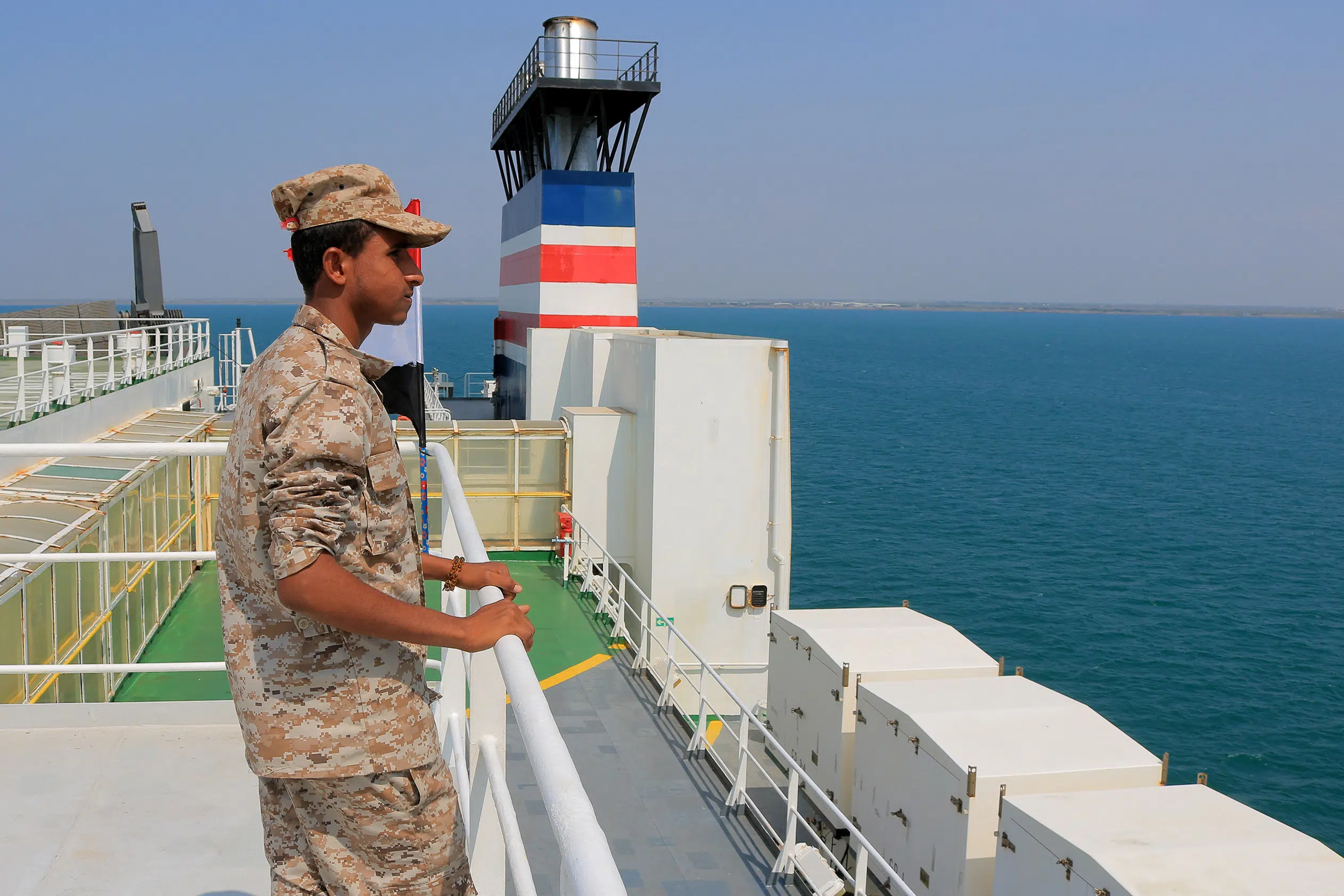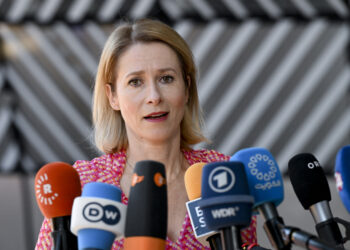Brussels – The EU, for now, sits on the fence. An interested and concerned spectator of the escalation of hostilities in the Middle East, with the new scourge of attacks on cargo ships in the Red Sea by Yemeni Houthi militias and the military response, fielded overnight by a coalition of countries led by the United States. On the horizon, a plan to send a European naval force to protect commercial vessels crossing the Suez Canal.
The problem is that the consequences in Europe are already being felt. The Egyptian strait accounts for 12 per cent of world trade in terms of transit of goods in international trade, a figure that increases to 30 per cent when containers are considered. What is needed for the primary sector passes through here: 14.6 per cent of the world’s import of grain products passes through Suez, on par with 14.5 per cent of fertilizer used in agriculture. Today Tesla announced that it will suspend most of its production in Germany for two weeks due to shortages of components due to longer shipping routes. Many companies are circumnavigating Africa to avoid possible attacks in the Red Sea.
The bombing of several military sites—about seventy—used by Houthi rebels in Yemen, which Washington coordinated with London and with the support of Australia, Canada, the Netherlands, and Barhein, is only likely to exacerbate the situation. NATO stated that “these attacks were defensive and designed to preserve freedom of navigation in one of the world’s most vital waterways,” while U.S. President Joe Biden, called them “a clear message that the United States and its partners will not tolerate attacks on its personnel or allow hostile actors to endanger freedom of navigation.”
But if the intent was to discourage retaliation by the Shiite militia, which undertook its attacks in open opposition to Israel’s bombing of the Palestinian population, judging by the initial reactions it may have been a washout. Houthi officials have already warned that the United States and the United Kingdom “will pay a heavy price” for this “blatant aggression” and will continue to target ships in the Red Sea. From Tehran, which forages Yemeni militias, comes the observation that “these arbitrary attacks will only fuel insecurity and instability in the region.”

Russia also took an immediate stance, calling for the convocation of an urgent meeting of the UN Security Council. “Russia believes that the attack by the United States and the United Kingdom against the positions of the Shiite Houthi movement, which is dominant in northern and central Yemen, constitutes a direct threat to global peace and security,” said Russian Foreign Ministry spokeswoman Maria Zakharova. Moscow called on the international community to “strongly condemn the attack on Yemen by a group of countries without a UN mandate.” The Security Council meeting will be held around 4 p.m. —10 p.m. Italian time—in New York.
Italy, France and Spain do not participate, Borrell studies a European mission
The EU 27, as in the face of the deflagration of the Israeli-Palestinian conflict, seem helpless and mostly divided. While Germany is considering whether to participate in U.S.-led security operations by deploying the frigate Hessen to the Red Sea, for now, France, Spain, and Italy have made it clear that they did not participate in the overnight raid. Palazzo Chigi sources specify that “Italy is working to keep tension low in the Red Sea and is engaged in the European coalition to guarantee the movement of ships.” Italy was reportedly informed “well in advance of the attack,” but the question of taking part in the offensive was not even raised, because—as Foreign Minister Antonio Tajani explained in the morning—”we cannot implement war actions without a parliamentary debate.”
But the concern is also in Rome: Italy alone has values worth 154 billion euros at stake, that’s how much Italian maritime import-export value transits the Suez Canal. We are talking about 40 per cent of the country’s maritime trade. Not only are the Houthi attacks driving up costs, but one possible scenario—drawn by the SRM study centre—is that ships may not enter the Mediterranean thus unloading in Northern Europe, resulting in damage to Italian ports.
In Brussels, the EU High Representative for Foreign Affairs, Josep Borrell, is in the process of drafting a proposal to play a more active role in the region. The 27 could discuss it as early as Tuesday, January 16, when the Union’s Political and Security Committee (PSC) meets: at stake would be the deployment of a European naval force to support the protection of commercial ships in the Red Sea, at least three destroyers or anti-aircraft frigates by next year. But now that tensions have already risen to a higher level, the plan of the European External Action Service (EEAS) is already in danger of being thrown out.
English version by the Translation Service of Withub



![La presidente della Commissione europea, Ursula von der Leyen, alla EU Budget Conference 2025 [Bruxelles, 20 maggio 2025]](https://www.eunews.it/wp-content/uploads/2025/05/vdl-bilancio-350x250.png)





![La presidente della Commissione europea, Ursula von der Leyen, alla EU Budget Conference 2025 [Bruxelles, 20 maggio 2025]](https://www.eunews.it/wp-content/uploads/2025/05/vdl-bilancio-120x86.png)